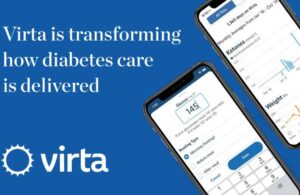
The company shared its data at the American Diabetes Association’s 83rd Scientific Sessions. The research highlighted its impact on health equity. It demonstrated significant health improvement and medication reduction for members in the most and least disadvantaged U.S. neighborhoods.
Virta said diabetes disproportionately affects racial and ethnic minorities and those living in low-income areas. Additionally, those with financial hardships prove more likely to receive prescriptions for diabetes drugs that are older and harder to manage due to affordability and access. With complex regimens, these lower-income patients have a higher likelihood of hospitalization and severe diabetes complications.
According to Virta, its approach can narrow these gaps by helping members achieve better metabolic health. Meanwhile, they reduce or even eliminate the need for medications like insulin.
Virta — launched in 2017 — aims to reverse type 2 diabetes. It designed its technology platform to enable personalized remote care. Its offerings include physician supervision, health coaches, an app and biomarker tracking tools. It also offers a personalized nutrition plan for its patients in the hopes of reversing type 2 diabetes.
About the Virta Health data
The company studied a random sample of nearly 20,000 members grouped by Area Deprivation Index (ADI). Reflecting nationwide trends, those in the most disadvantaged areas had higher blood sugar levels at baseline. They often received prescriptions for more complex, lower-cost diabetes medications with a greater risk of hypoglycemia.
At one year, all Virta members saw significant health improvement and medication deprescription with the diabetes reversal approach. This proved effective regardless of socioeconomic conditions.
Across all groups, members achieved at least a 1.1% decrease in A1c. Insulin prescriptions fell by 38% or more and sulfonylureas fell by 77% at one year, Virta noted. Notably, the company said, more disadvantaged groups had medications reduced at greater rates.
Finally, across all groups, members saw 7% weight loss on average. The FDA considers 5% weight loss “clinically significant.”
“While there’s much discussion around improving health equity in diabetes, actual solutions are sparse,” said Dr. Michael Lenoir, president of the African American Wellness Project and former President of the National Medical Association. “That’s what makes these findings so exciting—they show definitively that Virta’s approach can narrow or even eliminate disparities in diabetes care.”

